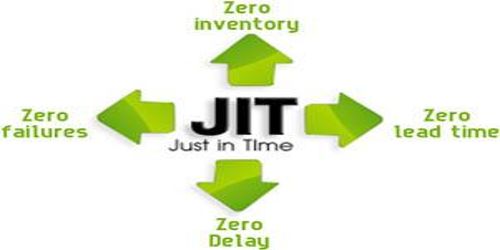Major benefits of Just in Time (JIT) System
Just in time system is basically a kind of inventory system in which materials are brought immediately prior to their use and finished products are manufactured only prior to shipment. The JIT system enhances the profit on investment through reducing overhead cost, removing obsolete inventory, and restricting quality inspections. The objective of Just-in-time is to increase the inventory turnover and reduce the holding cost and any other costs associated with it. Here are more benefits of using the just in time system.
Lowers cost: JIT system works to eliminate the costs of raw materials, product storage, and inventory. Traditionally, inventory of completed goods or raw materials is considered an asset. However, JIT regards stock as a dead investment or waste and thus it involves sourcing raw materials near the production time and shipping of the product instantaneously without storage. The end result is substantial savings got from not having to stock up finished products or raw materials.
Increases efficiency: The harmonization of supply together with production as well as production with the required demand enhances product flow and lessens the requirement of storage facilities. Actually, since JIT’s main focus is to eliminate waste from a certain production process, it results in the redesigning of the workplace to ensure better flow of both processes and goods. It also increases efficiency by minimizing product transportation across the workplace and removing redundant tasks. An increase in efficiency cuts down production time and enhances product quality as well.
Enhances supplier relationships: JIT’s success relies on the capability of a supplier to provide the necessary raw materials in time. For that reason, it fosters effective interaction with a supplier, stipulating the exact materials needed in exact quantities. In fact, a long-term active relationship with a specific supplier may remove the requirement of inspecting received goods.
Nevertheless, the JIT system opens a business to several risks. Since there are no stocks in a JIT system, a minor interruption in supplies from only one supplier may force the cessation of production.
















